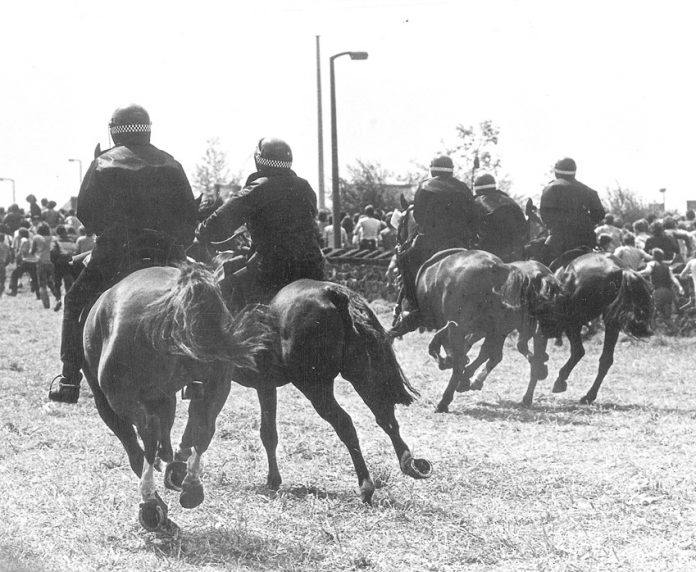CHRIS KITCHEN, leader of the NUM, demanded an inquiry yesterday into South Yorkshire Police over their manipulation of evidence against miners charged following the ‘Battle of Orgreave’ during the miners’ strike of 1984-85.
Speaking ahead of last night’s BBC Inside Out programme, Kitchen told News Line: ‘There is clear evidence that members of the South Yorkshire police were fabricating evidence against striking miners, including accusing them of rioting, which can carry a life sentence.
‘It’s important that an inquiry unveils whose instructions South Yorkshire police were acting on.’
Last night’s Inside Out programme showed that junior police officers were told what to write in their statements.
It followed last month’s Hillsborough Independent Panel’s report revealing that 164 South Yorkshire police statements had been altered after the disaster in April 1989 in which 96 Liverpool fans died.
If action had been taken against senior police officers who tried to manipulate evidence against the miners at Orgreave, the ‘culture of cover-up’ that existed in 1989 could have been dealt with long before the Hillsborough disaster.
On 18 June 1984, a miners mass picket of British Steel’s coking plant at Orgreave was attacked by 5,000 riot police.
By the end of the day many miners had suffered severe injuries and 93 had been arrested.
The trial of the arrested miners collapsed after 16 weeks when it became clear the police evidence was unreliable and they were all acquitted, but no action was taken against the police.
In last night’s Inside Out programme, Vera Baird QC said police officers at Orgreave were asked by South Yorkshire police detectives to describe in their statements ‘scenes they’d simply never seen’.
Baird, who defended 15 of the 93 pickets arrested at Orgreave, said: ‘You can see in a way that they were merely trying to set the scenario, but actually what they were doing was “teeing up”, perverting the course of justice.’
She said officers were told what to say in their statements
‘You can’t get statements in the way they have been done here – by police officers from different forces involved in different arrests – and find such a degree of similarity between those statements without there being some degree of collusion.’
The ‘clear plan’ by senior officers was to make the charges faced by pickets as serious as possible, said Baird.
100 police statements about Orgreave were examined by Sheffield barrister Mark George QC, who said they revealed ‘several dozen’ examples of officers using exactly the same phrases, signifying ‘widespread collusion’.
Norman Taylor, a detective with the Northumbria force who was on duty at Orgreave, said on the programme that he was told by a plain clothes policeman what to write as part of his witness statement.
‘He was reading from some paper, a paragraph or so, and he asked people to use that as their starting paragraph,’ said Taylor.
